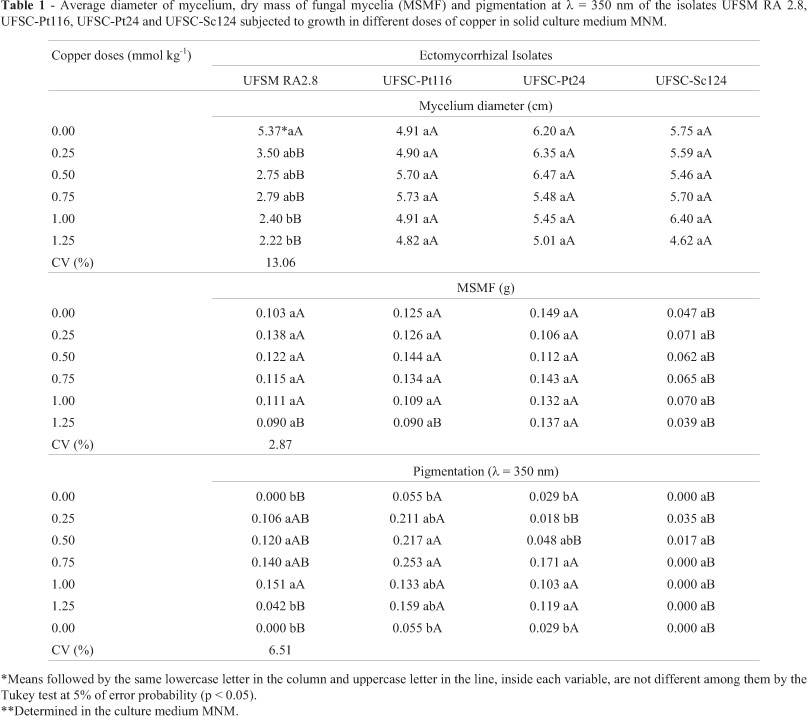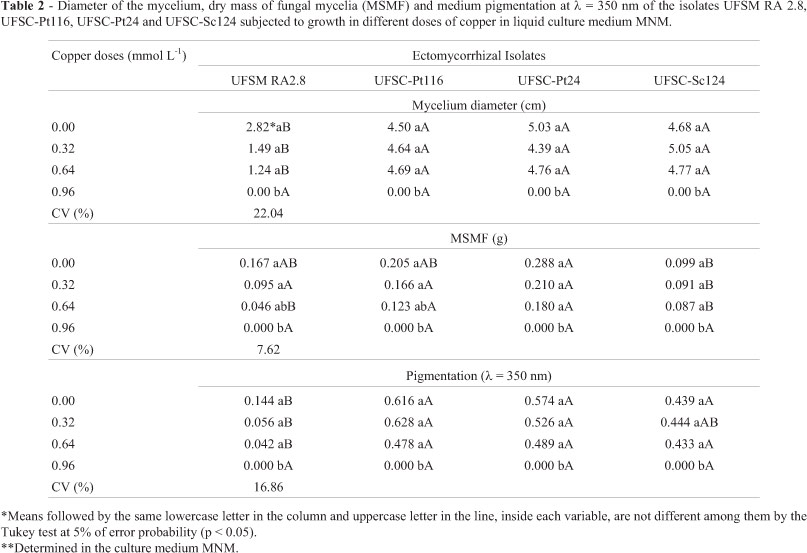Environments contaminated with heavy metals negatively impact the living organisms. Ectomycorrhizal fungi have shown important role in these impacted sites. Thus, this study aimed to evaluate the copper-resistance of ectomycorrhizal fungi isolates Pisolithus microcarpus - UFSC-Pt116; Pisolithus sp. - UFSC-PT24, Suillus sp. - UFSM RA 2.8 and Scleroderma sp. - UFSC-Sc124 to different copper doses in solid and liquid media. The copper doses tested were: 0.00, 0.25, 0.5, 0.75, 1.0 and 1.25 mmol L-1 in the solid medium and 0.00, 0.32, 0.64 and 0.96 mmol L-1 in the liquid medium. Copper was amended as copper sulphate in order to supplement the culture medium MNM at pH 4.8, with seven replicates to each fungus-dose combination. The fungal isolates were incubated for 30 days at 28 °C. UFSC-Pt116 showed high copper-resistance such as accessed by CL50 determinations (concentration to reduce 50% of the growth) as while as UFSC-PT24 displayed copper-resistance mechanism at 0.50 mmol L-1 in solid medium. The UFSC-PT24 and UFSC-Sc124 isolates have increased copper-resistance in liquid medium. The higher production of extracellular pigment was detected in UFSC-Pt116 cultures. The UFSC-Pt116 and UFSC-PT24 isolates showed higher resistance for copper and produced higher mycelium biomass than the other isolates. In this way, the isolates UFSG-Pt116 and UFSC-PT24 can be important candidates to survive in copper-contaminated areas, and can show important role in plants symbiosis in these contaminated sites.
ectomycorrhizal fungus; copper-resistance; Pisolithus microcarpus; Pisolithus sp.; Scleroderma sp.; Suillus sp







